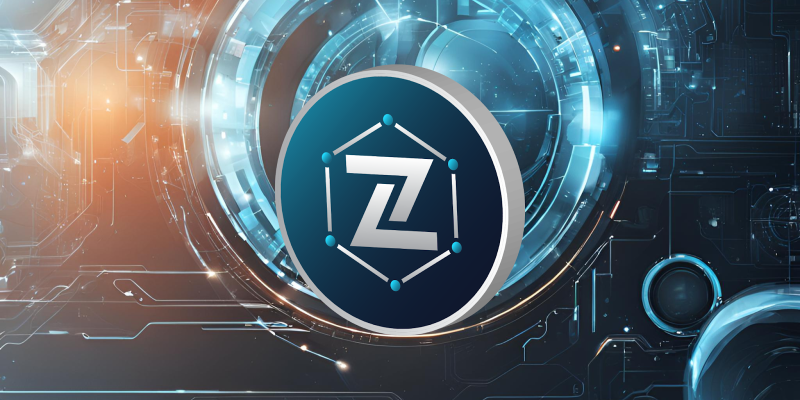 |
|
 |
|
 |
|
 |
|
 |
|
 |
|
 |
|
 |
|
 |
|
 |
|
 |
|
 |
|
 |
|
 |
|
 |
|
欧州の分散型金融(DeFi)プロトコルに関する今後の規制は、従来の金融機関の暗号空間への参入を促す一方で、暗号ネイティブプロジェクトに課題をもたらす可能性がある。 European Crypto InitiativeのエグゼクティブディレクターであるMarina Markezic氏は、規制により従来のプレーヤーの参入が容易になり、暗号ネイティブプロジェクトに対してより厳格なライセンスとコンプライアンスが要求される可能性があると示唆しています。 EUは、完全に分散化されたシステムからさまざまな程度の制御を備えたシステムまでの範囲のシステムを認識し、DeFiの規制範囲を定義することを目指しています。

European Crypto Regulations: Implications for DeFi and Traditional Finance
欧州の暗号通貨規制: DeFi と従来の金融への影響
Brussels, Belgium - Proposed regulations for decentralized finance (DeFi) protocols in Europe are poised to create significant challenges for crypto-native projects while potentially paving the way for licensed traditional financial institutions (TFIs) to enter the cryptocurrency market. This is the assessment of Marina Markezic, Executive Director of the European Crypto Initiative (ECI).
ベルギー、ブリュッセル - 欧州における分散型金融(DeFi)プロトコルに対する規制案は、仮想通貨ネイティブプロジェクトに重大な課題をもたらす一方、認可を受けた伝統的金融機関(TFI)が仮想通貨市場に参入する道を開く可能性がある。これは欧州暗号イニシアチブ(ECI)のエグゼクティブディレクター、マリーナ・マルケジッチ氏の評価だ。
In an exclusive interview with Cointelegraph, Markezic delved into the implications of the European Commission's upcoming DeFi report, anticipated for release on December 30, 2024. The report will delve into the feasibility of specific regulations for the DeFi ecosystem within the framework of the Markets in Crypto-Assets (MiCA) regulation.
コインテレグラフとの独占インタビューで、マルケジッチ氏は、2024年12月30日に発表予定の欧州委員会の次期DeFi報告書の影響について詳しく掘り下げた。この報告書は、市場の枠組み内でのDeFiエコシステムに対する特定の規制の実現可能性を掘り下げることになる。暗号資産 (MiCA) 規制。
Facilitating TFI Entry, Hindered Innovation
TFIへの参入を促進し、イノベーションを妨げる
"We believe that this regulation will encourage traditional players to enter the crypto space," remarked Markezic regarding the expected impacts. She noted that banks are already exploring the issuance of stablecoins, a crypto asset pegged to a stable currency like the US dollar.
マルケジッチ氏は予想される影響について「この規制が従来のプレーヤーの仮想通貨分野への参入を促すと信じている」と述べた。彼女は、銀行がすでに米ドルのような安定した通貨に固定された暗号資産であるステーブルコインの発行を検討していると指摘した。
However, she cautioned that the impending regulatory landscape "will make it harder for all crypto native projects to get licensed and be compliant." This could give TFIs an advantage in navigating regulatory complexities.
しかし、彼女は、差し迫った規制情勢により「すべての仮想通貨ネイティブプロジェクトがライセンスを取得し、準拠することが困難になるだろう」と警告した。これにより、TFI は複雑な規制を乗り越える上で有利になる可能性があります。
Defining Decentralization: A Spectrum of Control
分散化の定義: 制御の範囲
The EU report seeks to clarify how decentralized systems should be regulated, particularly those without a clear issuer or service provider, such as decentralized exchanges (DEXs). A key outcome will be the establishment of initial definitions for decentralization from a regulatory standpoint.
EUの報告書は、分散型システム、特に分散型取引所(DEX)など、明確な発行者やサービスプロバイダーが存在しないシステムをどのように規制すべきかを明確にすることを目指している。重要な成果は、規制の観点から分散化の最初の定義を確立することです。
Markezic argues that "DeFi is not a black and white scenario but rather exists along a spectrum." This spectrum encompasses varying degrees of control and management, ranging from fully autonomous systems with no human intervention to systems with varying levels of oversight.
マルケジッチ氏は、「DeFiは白か黒かのシナリオではなく、むしろスペクトルに沿って存在する」と主張する。この範囲には、人間の介入がない完全自律システムから、さまざまなレベルの監視が行われるシステムに至るまで、さまざまなレベルの制御と管理が含まれます。
Advocating for Standards over Rigid Rules
厳格なルールよりも標準を主張する
Legal experts emphasize the need for clear standards rather than stringent rules for DeFi regulation. "It is crucial to align on what constitutes DeFi," asserted Sascha Drobnjak, former head of legal and compliance at the Elusiv protocol. "Rigid rules pose challenges for enforcing regulations in a system without a tangible actor."
法律専門家は、DeFi規制には厳格なルールではなく、明確な基準の必要性を強調している。 「何が DeFi を構成するかについて調整することが重要です」と、Elusiv プロトコルの法務およびコンプライアンスの元責任者である Sascha Drobnjak 氏は主張しました。 「厳格なルールは、明確な主体のないシステムで規制を施行する際の課題を引き起こします。」
Drobnjak believes that regulations based on principles and standards provide greater adaptability to future technological innovations.
Drobnjak 氏は、原則と標準に基づいた規制により、将来の技術革新への適応性が高まると考えています。
DeFi: Disrupting Traditional Finance
DeFi: 従来の金融を破壊する
DeFi refers to financial services built on public blockchains, primarily Ethereum. It replicates services offered by banks and financial institutions, such as lending, borrowing, trading, and insurance, but operates without intermediaries.
DeFi は、パブリック ブロックチェーン、主にイーサリアム上に構築された金融サービスを指します。銀行や金融機関が提供する融資、借入、取引、保険などのサービスを複製しますが、仲介業者なしで運営されます。
Europe's DeFi market is projected to experience significant growth in the coming years. Statista forecasts revenue generation of approximately $6.69 billion in 2024, with a compound annual growth rate of 9.67% between 2024 and 2028, reaching $9.68 billion by 2028.
ヨーロッパのDeFi市場は、今後数年間で大幅な成長を遂げると予測されています。 Statista は、2024 年の収益創出は約 66 億 9 千万ドルで、2024 年から 2028 年までの年間平均成長率は 9.67% となり、2028 年までに 96 億 8 千万ドルに達すると予測しています。
Conclusion
結論
Upcoming DeFi regulations in Europe present a complex and evolving landscape. While they may facilitate the entry of TFIs into the crypto space, they could also impose barriers to innovative crypto native projects. The regulatory landscape will continue to shape the future of DeFi in Europe, with the EU report serving as a crucial step in defining the regulatory framework for this burgeoning sector.
ヨーロッパにおける今後の DeFi 規制は、複雑かつ進化する状況を示しています。これらはTFIの暗号空間への参入を促進するかもしれないが、革新的な暗号ネイティブプロジェクトに障壁を課す可能性もある。規制の状況は今後も欧州における DeFi の将来を形作るものであり、EU の報告書はこの急成長するセクターの規制枠組みを定義する重要なステップとして機能します。
免責事項:info@kdj.com
提供される情報は取引に関するアドバイスではありません。 kdj.com は、この記事で提供される情報に基づいて行われた投資に対して一切の責任を負いません。暗号通貨は変動性が高いため、十分な調査を行った上で慎重に投資することを強くお勧めします。
このウェブサイトで使用されているコンテンツが著作権を侵害していると思われる場合は、直ちに当社 (info@kdj.com) までご連絡ください。速やかに削除させていただきます。
-

-

-

-

-

-

-

-

-

- 女性はビットコイン革命の重要な選手です。
- 2025-03-09 08:50:45
- 今週の時点で、私たちはビットコインによって少なくとも部分的に引き受けられている新しい経済に参加しています。



























































